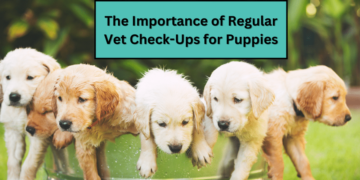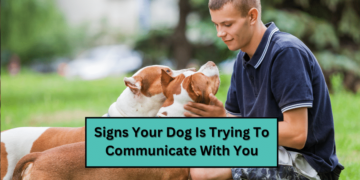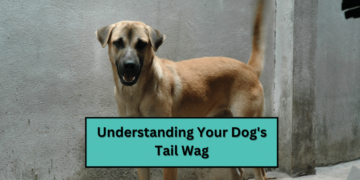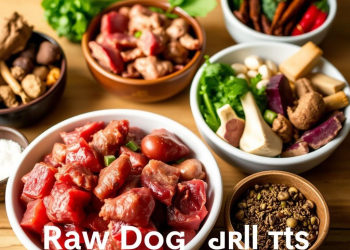Dogs generally have a completely different diet than we do, so we need to keep an eye on what they eat and feed them safe and healthy foods only. So, what about olive oil? Is olive oil good for dogs, or is it another thing we must avoid? Let’s find out!
Is Olive Oil Good For Dogs?
Yes, it is healthy, and it is something all dogs do need. As a matter of fact, there are plenty of health benefits dogs can get when consuming food containing olive oil. We will reveal all of them now.
Choose The ‘’Correct’’ Olive Oil
The first thing you need to know, after getting the answer to whether olive oil is good for dogs, is which oil to choose. Yes, there are a lot of options at any grocery store, but not all of them are desirable.
Cheap olive oils are made from low-quality olives; hence, they do not contain a lot of healthy nutrients and ingredients that high-end olive oils will. Keep in mind that “light” and “pure” are terms used to define low-quality olive oils. Go for extra-virgin olive oil. Your dog needs about 1 tablespoon for every 20 pounds of body weight.
Nutritional Components of Olive Oil
Olive oil, revered for its myriad of health benefits in human diets, is derived from the fruit of the olive tree. At its essence, the composition of olive oil is a testament to its nutritional richness, and it’s this nutritional profile that sparks interest in its potential benefits for dogs.
-
Fatty Acids:
Monounsaturated Fats: Olive oil is predominantly composed of monounsaturated fats, particularly oleic acid, which accounts for 55% to 83% of its total composition. Monounsaturated fats have been linked to various health benefits, including reduced inflammation and a lowered risk of chronic diseases.
Omega-3 and Omega-6: While not as abundant as in some other oils, olive oil contains essential fatty acids like Omega-3 and Omega-6 in smaller proportions. These fatty acids play crucial roles in maintaining cell wall integrity, brain health, and inflammation modulation.
-
Antioxidants:
Olive oil boasts a rich array of antioxidants, including vitamin E, vitamin K, and phenolic compounds like tyrosol and hydroxytyrosol. These antioxidants combat oxidative stress, reducing the damage caused by free radicals in the body. For dogs, this can mean healthier skin, a shinier coat, and potentially a more robust immune response.
-
Vitamins:
Olive oil contains fat-soluble vitamins, notably vitamin E and K. Vitamin E plays a pivotal role in skin health and wound healing, while vitamin K is vital for blood clotting and bone metabolism.
-
Polyphenols:
These are micronutrients packed with antioxidants, which are believed to improve or help treat digestive issues, weight management difficulties, diabetes, neurodegenerative diseases, and cardiovascular diseases. While the direct impact of polyphenols on canine health is still being researched, their antioxidant properties are promising.
When considering incorporating olive oil into a dog’s diet, it’s essential to understand these components to gauge its potential benefits and any associated risks. Always, moderation is key, and consulting with a veterinarian is recommended before making significant changes to a pet’s diet.
Health Benefits Dogs Get From Olive Oil
For most dog owners, this is the main section and something they will want to memorize. There are a few health benefits all dogs will get from consuming olive oil. Below, we will discuss and explain all of these.
1. Skin Health
Olive oil will keep the skin of your dog in superb condition. He will also be less sensitive to fleas, allergies, and infections. This is possible thanks to high levels of omega-3 and omega-6 fatty acids, which boost the health of skin cells.
2. Stunning Coat
Most dog owners want to see a shiny, healthy coat on their dogs. Thanks to the aforementioned fatty acids, olive oil will have a positive effect on the coat. It is important to add that this is done at the cell level, so there is no need to apply oil to your dog’s coat. Just add it to the diet. Another thing to know is that your dog will need 30 days to show signs of improvement.

3. The Health of The Joints
Olive oil contains oleic acid and it also has antioxidants which all have a huge effect on the health of the joints. This is even more important for senior dogs, who are at a higher risk of hip dysplasia, arthritis, and similar conditions. These ingredients decrease the pain and increase the mobility of your pet. Many dogs are sensitive to pain medications, which makes olive oil an excellent alternative.
4. It Will Help Your Dog Maintain a Proper Weight
Thanks to monounsaturated fats that are found in olive oil, a dog can lose weight simply because his fat cells will be broken down faster and more efficiently. Don’t forget that one tablespoon of olive oil has 120 calories, so you need to use it in moderation to prevent any weight gain.
5. Affects The Digestive System
Olive oil acts as lubricate inside the digestive tract and makes all the food and all the rest as a matter of fact pass smoothly and without any issues. If your pet eats only dry food, add a tablespoon of olive oil to his diet occasionally. The benefits are impressive.
6. Improved Cardiovascular Health
Olive oil contains phytonutrients and vitamin E. When combined, these nutrients will affect the cardiovascular system and maintain optimal health. Yes, you can get the same perk using a diet, but this benefit is possible only with extremely expensive and advanced diets.
7. Stronger Immune System
Olive oil contains chlorophyll, polyphenols, and vitamin E. When all of these are present, your poet will have a stronger immune system. There is no need to tell you how important and appealing this benefit is for all dog owners.
8. Decrease The Risk Of Cancer
Believe it or not, olive oil is another healthy and natural addition to the diet that can decrease the risk of cancer. Keep in mind that over 50% of dogs are prone to cancer, so this benefit is extremely important. Olive oil has antioxidant properties, which are responsible for this benefit. It does work and is very effective.
Potential Side Effects and Precautions
While olive oil offers numerous benefits, it’s essential to approach its inclusion in a dog’s diet with caution. When consumed in excessive amounts or without due consideration, it might lead to potential side effects. Here’s what every dog owner should be aware of:
Weight Gain:
Olive oil is calorie-dense. A single tablespoon contains about 120 calories. Adding too much olive oil to your dog’s food might result in weight gain, especially if no adjustments are made to their overall caloric intake.
Digestive Issues:
Sudden changes or large quantities of any food or supplement, including olive oil, can lead to digestive upset in dogs. This might manifest as diarrhea or vomiting. It’s always recommended to start with small amounts and monitor your dog’s response.
Pancreatitis Risk:
Foods rich in fat, if given in large quantities, can trigger pancreatitis in dogs—a painful and potentially serious inflammation of the pancreas. While the risk is relatively low with moderate consumption of olive oil, it’s still a consideration, especially for dogs with a history of the condition.
Slippery Surfaces:
If you’re applying olive oil externally to your dog’s skin or coat, be mindful of the oil that might drip or be rubbed off onto floors. This can create slippery surfaces which might pose a fall risk for both pets and humans.
Allergic Reactions:
Though rare, dogs can be allergic to anything, including olive oil. Always observe your dog for any signs of an allergic reaction, such as itching, swelling, or difficulty breathing, especially after the first few applications or ingestions.
Quality Matters:
Not all olive oils are created equal. Some might be mixed with other oils or might contain additives that aren’t suitable for dogs. Always opt for high-quality, extra virgin olive oil and avoid those with added flavors or spices.
Introduce Olive Oil Slowly To Your Dog’s Diet

It is important to add that most dogs will get all of these health benefits when they consume olive oil. This is great. But, not all dogs will react the same. Their digestive systems are different, so some dogs can get issues such as upset stomachs when they consume olive oil. The chances of this happening are very low, but they are still present. You will want to start with a few drops and monitor the situation. If there are no issues or anything similar, you can increase the amount until you reach the recommended dosage (1 tablespoon per 20 pounds of the weight of your pet).
It is also a nice idea to check with your vet and see if there are any risks or allergies you need to worry about. Each dog is different, so there are a lot of variables you need to worry about.
When both of these things are done properly, the risk of any issue or problem is extremely low, and you will be able to add olive oil to your dog’s diet safely and at regular intervals. There won’t be any issues at all.
The Final Word
Is olive oil good for dogs, or should you avoid it? As you were able to see, this is a great addition to your dog’s diet and something all dog owners should consider. While there are many health benefits, there are not a lot of things to worry about. Just give it in small amounts due to the high calorie count. Also, introduce your dog to olive oil slowly.
Frequently Asked Questions (FAQ)
Can I give my dog olive oil every day?
While olive oil is generally safe for dogs, it’s recommended to give it in moderation. Depending on your dog’s size and dietary needs, a few drops to a teaspoon a few times a week should suffice. Always consult with your veterinarian for specific recommendations.
How much olive oil should I give my dog?
For small dogs, start with a quarter to half a teaspoon and for larger dogs, one to two teaspoons. However, ensure you factor in the added calories and adjust their overall diet accordingly.
Can olive oil help with my dog’s dry skin?
Yes, olive oil can help moisturize your dog’s skin when applied topically. It’s also rich in antioxidants and can improve skin health when ingested.
Is extra virgin olive oil better for dogs?
Extra virgin olive oil is the purest form and contains more of the beneficial compounds and antioxidants than other types. It’s the best choice for both humans and dogs.
What’s the difference between giving my dog olive oil and fish oil?
While both oils offer health benefits, fish oil is rich in omega-3 fatty acids, which are known for their anti-inflammatory properties. Olive oil doesn’t have as much omega-3 but is still beneficial due to its antioxidants and vitamin E content.
My dog consumed a lot of olive oil by accident. What should I do?
Excessive intake can lead to diarrhea or vomiting. If your dog consumed a large amount, monitor them closely and consult with your vet. It’s also a good idea to ensure they have plenty of water.
Can I cook with olive oil for my dog?
Yes, but avoid using too much, and always ensure the food is at a safe temperature before giving it to your pet. Remember, cooked or raw, the benefits remain, but moderation is key.
Can I use olive oil to remove ear mites in dogs?
Some pet owners use olive oil to suffocate and eliminate ear mites. However, it’s crucial to consult with a vet before trying home remedies.
Does olive oil expire, and is it safe to give my dog expired olive oil?
Like all oils, olive oil does expire and can become rancid. Giving rancid oil to your dog might cause digestive upset. Always check the expiry date and ensure the oil smells fresh.
Are there any dogs that shouldn’t have olive oil?
While most dogs can safely consume olive oil, those with specific health conditions, especially pancreatitis, or a history of it, should avoid high-fat foods. Always consult with a vet for individual guidance.

















































Discussion about this post